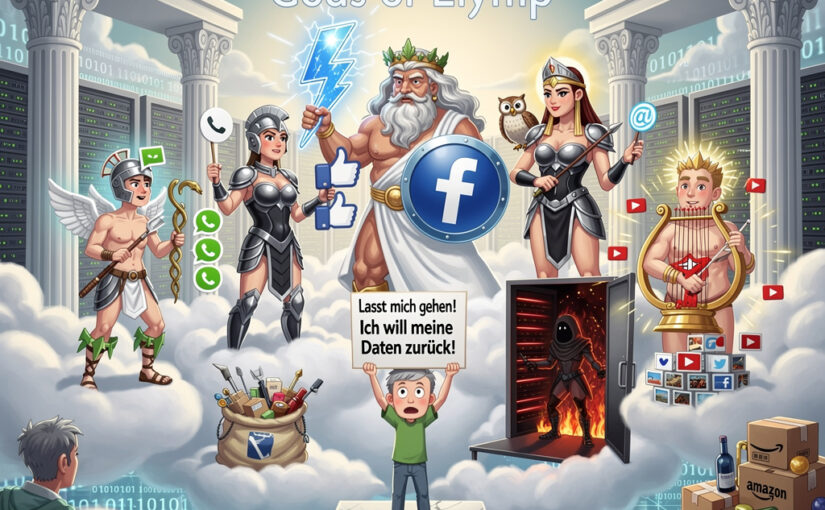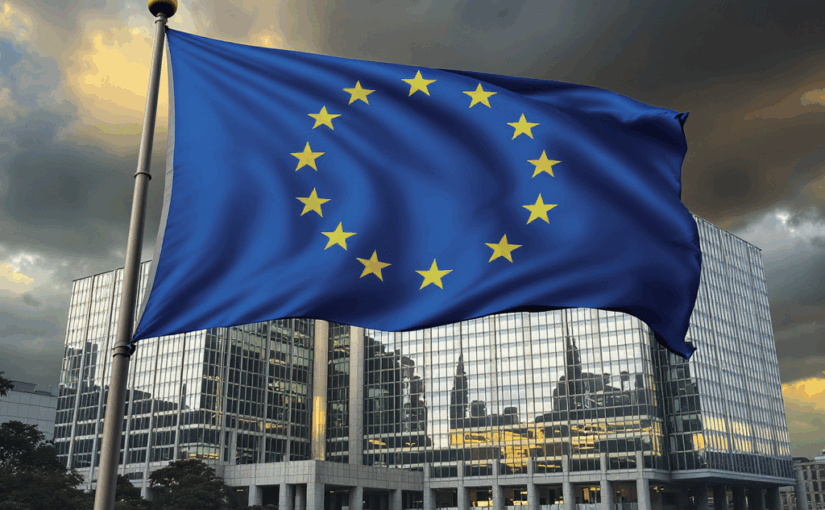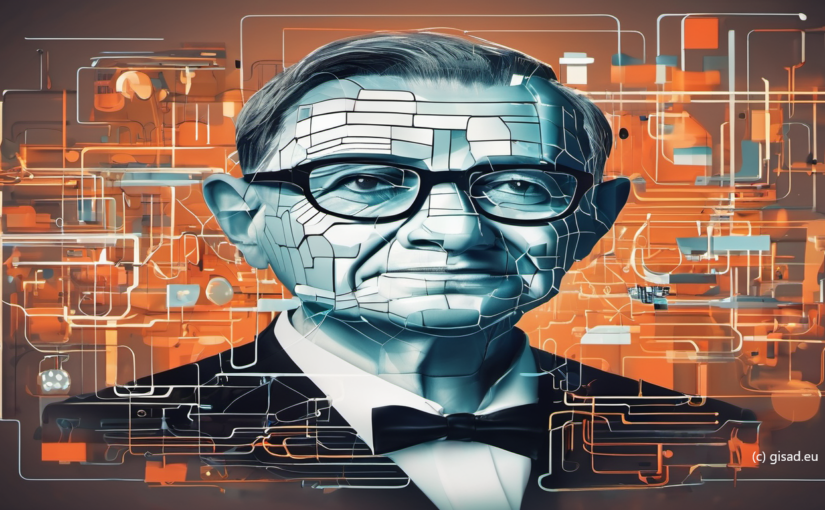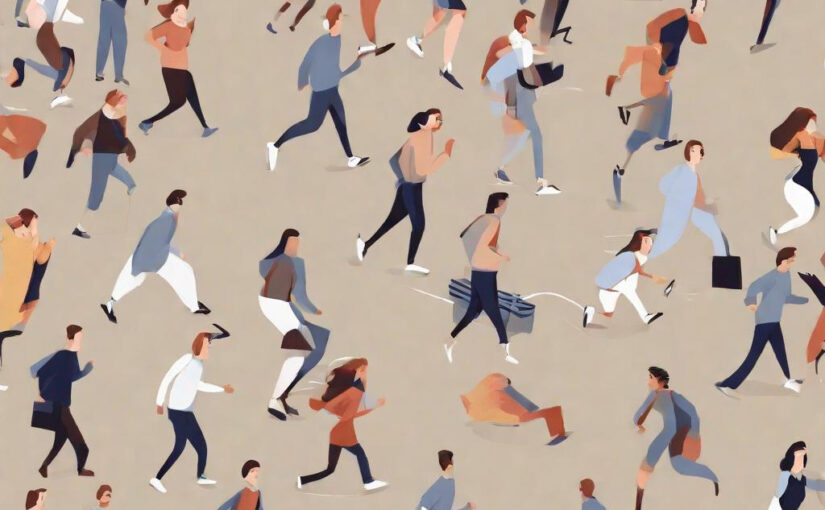Before Christian Lindner invited me to join the FDP in 2017, politics for me was primarily something you had to endure in order to find your way.
I have since realised that I have always held liberal positions. In the following, I will prove that liberalism is a law of human nature. Liberalism always starts from the individual. It finds its justification in the centuries-long success of democracies. Once a democratic system was established, it was very difficult to replace it with another by peaceful means – at least in pre-digital times. The key to the success of a democracy is the active participation of almost all citizens in shaping society. This is precisely what digitalisation would be ideally suited to. But the potential remains untapped.
A key stability factor for democracies is a sustainably prosperous economy. Autocratic economic systems such as China are increasingly threatening our economy as they successfully use digitalisation to strengthen their social system.
Democracies, on the other hand, are dependent on gatekeepers who also work with autocratic methods, but only to scale business models in the interests of the few. Since democracies such as Germany, unlike China, have not managed their social digitalisation, our economy is ultimately weakened by the gatekeepers in the long term. The gatekeepers have an interest in keeping us in a state of sensory overload and permanent excitement for as long as possible, see https://www.uni-bonn.de/de/universitaet/presse-kommunikation/presseservice/archiv-pressemitteilungen/2015/195-2015. I myself only have a high creative output because I check my digital news three times a day at fixed times and therefore allow myself to be distracted very little.
What evidence do I have for liberalism as a law of human nature?
In the 1980s, while studying at VHS Düsseldorf, I helped set up a programme for illiterate adults. We had great success in encouraging each adult to read individually, uncovering letters, letter sequences or words with a card and realised that everyone learns completely differently, see https://books.google.de/books/about/Theorie_und_Praxis_der_Alphabetisierung.html?id=ekevPgAACAAJ. The analytical-synthetic reading learning method is the most comparable method today. However, learning methods are still made for teachers and not for pupils. Because teachers need control. How are they supposed to award grades if there is no comparable learning framework in which everyone is doing the same thing? I am convinced that even today many people still fall through the cracks or fail to realise their potential because schools violate the natural law of liberalism. States also believe that they have to control everything and have transferred an expectation to their citizens that they are infallible. Ultimately, however, they lose control precisely because they do not utilise the digital possibilities to involve citizens in democratic processes with real power of disposition. Failure on a small scale must be accepted as part of social change!
I am delighted about the Nobel Prize in Economics for the three researchers Acemoglu, Johnson and Robinson. They have scientifically proven that societies in which there are incentive systems for everyone are also the most economically successful.
In the 1990s, alongside my entrepreneurial activities, I was involved in setting up GraTeach Forschungs- und Qualifizierungskonzepte für neue Medien GmbH. At that time, there was a high level of graduate unemployment. The fact that the participants were involved in real projects from day one and were able to contribute their individual skills in teams meant that a placement rate of 100 per cent was achieved. GraTeach was driven into insolvency by a remote-controlled state of NRW. There were certainly envious parties among other competitors subsidised with Objective 2 funds. But the extensive manipulations of the state and the NRW judiciary suggest that it was more a case of me having implemented my search engine patent without any further capital requirements that could have been used to put me under pressure, which could produce the diversity with at least 1,000 specialised search engines behind a joint entry to this day. A market analysis based on a first customer at that time would still be able to generate billions of euros in sales today if there were independent decisions from the gatekeepers. The state of NRW has acted in the interests of the gatekeepers and against the liberal nature of the people.
In the 2000s, I developed the social media concept getmysense on the basis of the search engine patent, which is not about artificial excitement, but about being the best in the smallest meaningful unit (moneme). The plan was to realise it in 2,500 languages. Like-minded people from different languages could find each other by connecting the monemes without having to speak the same language. Today, such a system could be mapped using an AI. In 2014, getmysense actually managed to be online for 2 days before the server was taken down by countless cyberattacks. There was no state I could have asked for help. Today, cyber incidents have to be reported, but if the state doesn’t even care who is working for digital democracy, how is it supposed to offer protection?
In fact, there were subsequently various attempts to support getTIME.net GmbH with EU funds or, during the FDP era, even with a state guarantee. But the public sector simply didn’t understand that without special protection, any support in this risky environment would have led to my personal ruin.
I am currently disappointed by the NRW Minister of Economic Affairs and the NRW Minister of Justice, who are simply ducking away instead of accepting my offer to create the legal conditions for renewed cooperation. I have only ever seen this kind of behaviour from various NRW Minister Presidents. I found it difficult to accommodate the state to such an extent from my point of view.
Yes, it shakes the belief in the infallibility of the state of NRW if it cannot at least rule out being directly responsible for undesirable democratic developments. But it is precisely this reappraisal that citizens expect. This is the only way to regain lost trust in democracy.
In recent years, I have registered many liberal patents that take individual people into account because they are decentralised. After all, a personalised digital system could have significantly strengthened democracies and even prevented the war in Ukraine. A resolution against the war in Ukraine was passed unanimously by the FDP EU delegates and the grassroots. However, I was no longer able to take care of this because all my weak points were sounded out in order to damage me. I have defined the new offence of ‘gang-like appearance’ for this purpose.
Indications of a gang-like appearance:
- The prevention of a competitor with a potential market volume in the multi-digit million euro range and possible global scalability.
- Digital disinformation, which requires considerable technical effort and resources.
- Apparently random but coordinated manipulation by several agitators who are unaware of the overall picture and target. The agitator usually believes he is representing his own interests.
- Using agitators to systematically probe all the weak points of a target.
- Long-term planning: infiltration of agitators into a target’s environment long before a concerted action. Rewarding the agitator at intervals outside the statutory limitation period, for example through a later career leap.
- Permanent monitoring of communication and recruitment of an activator who prevents the possible use of digital democracy in a short time window by significantly impairing the target mentally and temporally.
- Manipulation of the judiciary through precise knowledge of the weaknesses of the legal system by using legally compliant procedures as a cover for agitation. Consideration of legal tunnel vision. If an attack is divided into several legal acts, these are dealt with individually. The systematic creation of an overall view ex officio is not yet provided for in the legal system.
After all, the Federal Constitutional Court has allowed four complaints to be decided:
-1BvR 227/23 – on: ‘the emergence of a digital society in which no power emanates from the people’, ‘leaving the transfer of the constitutional order of a digital society to the forces of the free market’.
-1 BvR 1640/24-, -1 BvR 1641/24-, -2 BvR 907/24 – on: ‘a legal system that places those who advocate the preservation of fundamental rights in the digital society in a worse position than others who do not’, ‘a state that fails to take appropriate measures to protect the Basic Law in the digital society’.
Let’s assume that there will soon be an AI whose intelligence is comparable to that of humans. Humans are defined by their genetic make-up and imprinting. Let’s assume that the ‘genetic make-up’ of an AI can be regulated by law. What is certain is that AI can only make decisions based on the data available to it. Most of the data we have today was collected via humans and not consciously generated by humans. Imagine what conclusions a human child would draw in an environment where there are no limits. The economic goals of analysing today’s data are limited to highly scalable business models that accept the lasting damage to society. If we do not create data structures that reflect liberal and democratic ways of thinking in the shortest possible time, democracies will disappear. All the social upheavals that we are experiencing today, including many wars, can be seen as the result of socially unreflected digitalisation.
Personally, I am at a crossroads. At the moment, I can only ensure my retirement security with measures or products that are detrimental to democracy. On closer inspection, this only puts me in the ranks of the digitally successful.
Important topics are:
- Identifying democracy-preserving measures and products using a key figure for social structural relevance.
- Functioning incentive system for assuming an acceptable entrepreneurial risk for democracy-preserving measures and products with the expectation of lower profits.
- Adoption of an overall digital concept that can transfer the pre-digital democratic achievements into a liberal digital society.
- Extension of Articles 5, 8, 12, 13, 14 and 20 of the German Basic Law to the requirements of a digital democratic society.









